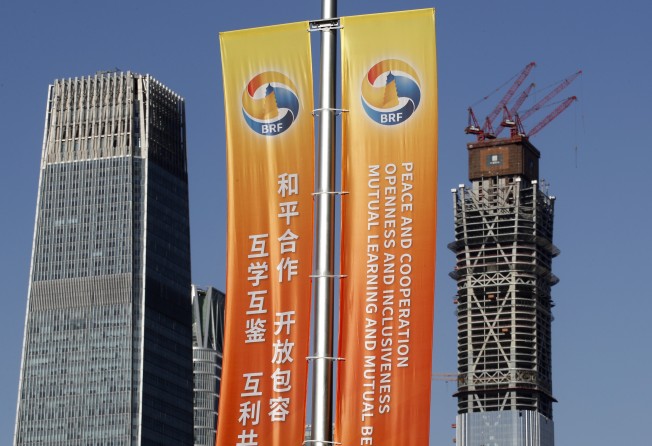
Cash crunch on China’s new Silk Road
Central bank official appeals to international lenders to help fund ‘Belt and Road Initiative’

China is urgently seeking support from international lenders to close a yawning financing gap for projects under its “Belt and Road Initiative”, a top official said.
The remarks from Yi Gang, vice-governor of the People’s Bank of China, come just days ahead of the Belt and Road Forum for International Cooperation on Sunday and Monday. Leaders from 29 countries and regions will gather in Beijing to learn more about the blueprint for China’s trade scheme.
Infrastructure and other key projects in belt and road countries had “strong demand for financing”, and support from the global market was “desperately needed”, Yi said in an interview with People’s Daily yesterday.

The calls, among the first straightforward cries for financial help from top officials, highlighted China’s dilemma in pursuing a bigger influence in the world amid a domestic economic slowdown, swelling debts and huge capital outflows.
While the plan is designed to speed development in Asia, Europe and Africa, the Asian Development Bank says there is a US$26 trillion funding gap in the infrastructure projects that will be required in Asia alone by 2030.
China had invested more than US$50 billion in belt and road countries since President Xi Jinping introduced the initiative in 2013, Xinhua has said.
“Most projects are financed by Chinese financial institutions, while participation of international institutions is relatively limited,” Pan Guangwei, vice-chairman of the China Banking Association, said.
“Policy banks are making progress in doling out loans, but commercial banks are less active.”
Many infrastructure projects were long-term and required large amounts of investment, so a system of “policy banks, commercial lenders and international development institutions” was needed to ensure their financial sustainability, Pan said.
However, analysts said it would be challenging to convince global lenders to get involved in the belt and road scheme while the commercial soundness of many its projects was still in doubt.
“I’m not optimistic about other parties’ active participation,” Hong Hao, chief strategist at Bocom International, said.
“When they believe the initiative is mainly aimed at building up China’s sway, instead of providing profitable projects, few will be interested.”
China would have to rely on issuing long-term bonds to finance the scheme, Hong said.
However, Wang Huiyao, the director of the Centre for China and Globalisation, said the belt and road initiative would be unsustainable without the involvement of international financial institutions.
“China needs an international capital pool, which should include world financial institutions as well as various funds, such as special development funds raised in rich Middle Eastern countries, or targeting Southeast Asian tycoons,” he said.
To increase the appeal of the initiative, Beijing should explain its intentions, publish a list of belt and road projects and introduce some profitable pilot schemes to lure initial investors to get onboard, Zhao Xijun, a finance professor at Renmin University in Beijing, said.